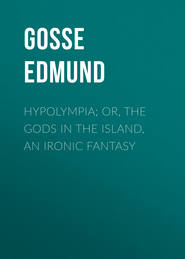По всем вопросам обращайтесь на: info@litportal.ru
(©) 2003-2024.
✖
Raleigh
Настройки чтения
Размер шрифта
Высота строк
Поля
He was justly elated. He knew that his resources were exhausted, his energies abated, and that pardon would now merely mean a relegation to oblivion. He took his public execution with delight, as if it were a martyrdom, and had the greatness of soul to perceive that nothing could possibly commend his career and character to posterity so much as to leave this mortal stage with a telling soliloquy. His powers were drawn together to their height; his intellect, which had lately seemed to be growing dim, had never flashed more brilliantly, and the biographer can recall but one occasion in Raleigh's life, and that the morning of St. Barnaby at Cadiz, when his bearing was of quite so gallant a magnificence. As he stood on the scaffold in the cold morning air, he foiled James and Philip at one thrust, and conquered the esteem of all posterity. It is only now, after two centuries and a half, that history is beginning to hint that there was not a little special pleading and some excusable equivocation in this great apology which rang through monarchical England like the blast of a clarion, and which echoed in secret places till the oppressed rose up and claimed their liberty.
He spoke for about five-and-twenty minutes. His speech was excessively ingenious, as well as eloquent, and directed to move the sympathy of his hearers as much as possible, without any deviation from literal truth. He said that it was true that he had tried to escape to France, but that his motive was not treasonable; he knew the King to be justly incensed, and thought that from La Rochelle he might negotiate his pardon. What he said about the commission from France is so ingeniously worded, as to leave us absolutely without evidence from this quarter. After speaking about La Chesnée's visits, he proceeded to denounce the base Mannourie and his miserable master Sir Lewis Stukely, yet without a word of unseemly invective. He then defended his actions in the Guiana voyage, and turning brusquely to the Earl of Arundel, appealed to him for evidence that the last words spoken between them as the 'Destiny' left the Thames were of Raleigh's return to England. This was to rebut the accusation that Raleigh had been overpowered by his mutinous crew, and brought to Kinsale against his will. Arundel answered, 'And so you did!' The Sheriff presently showing some impatience, Raleigh asked pardon, and begged to say but a few words more. He had been vexed to find that the Dean of Westminster believed a story which was in general circulation to the effect that Raleigh behaved insolently at the execution of Essex, 'puffing out tobacco in disdain of him;' this he solemnly denied. He then closed as follows:
And now I entreat that you will all join me in prayer to the Great God of Heaven, whom I have grievously offended, being a man full of all vanity, who has lived a sinful life in such callings as have been most inducing to it; for I have been a soldier, a sailor, and a courtier, which are courses of wickedness and vice; that His almighty goodness will forgive me; that He will cast away my sins from me; and that He will receive me into everlasting life. – So I take my leave of you all, making my peace with God.
Proclamation was then made that all visitors should quit the scaffold. In parting with his friends, Raleigh besought them, and Arundel in particular, to beg the King to guard his memory against scurrilous pamphleteers. The noblemen lingered so long, that it was Raleigh himself who gently dismissed them. 'I have a long journey to go,' he said, and smiled, 'therefore I must take my leave of you.' When the friends had retired he addressed himself to prayer, having first announced that he died in the faith of the Church of England. When his prayer was done, he took off his night-gown and doublet, and called to the headsman to show him the axe. The man hesitated, and Raleigh cried, 'I prithee, let me see it. Dost thou think that I am afraid of it?' Having passed his finger along the edge, he gave it back, and turning to the Sheriff, smiled, and said, ''Tis a sharp medicine, but one that will cure me of all my diseases.' The executioner, overcome with emotion, kneeled before him for pardon. Raleigh put his two hands upon his shoulders, and said he forgave him with all his heart. He added, 'When I stretch forth my hands, despatch me.' He then rose erect, and bowed ceremoniously to the spectators to the right and then to the left, and said aloud, 'Give me heartily your prayers.' The Sheriff then asked him which way he would lay himself on the block. Raleigh answered, 'So the heart be right, it matters not which way the head lies,' but he chose to lie facing the east. The headsman hastened to place his own cloak beneath him, so displaying the axe. Raleigh then lay down, and the company was hushed while he remained awhile in silent prayer. He was then seen to stretch out his hands, but the headsman was absolutely unnerved and could not stir. Raleigh repeated the action, but again without result. The rich Devonshire voice was then heard again, and for the last time. 'What dost thou fear? Strike, man, strike!' His body neither twitched nor trembled; only his lips were seen still moving in prayer. At last the headsman summoned his resolution, and though he struck twice, the first blow was fatal.
Sir Walter Raleigh was probably well advanced in his sixty-seventh year, but grief and travel had made him look much older. He was still vigorous, however, and the effusion from his body was so extraordinary, that many of the spectators shared the wonder of Lady Macbeth, that the old man had so much blood in him. The head was shown to the spectators, on both sides of the scaffold, and was then dropped into a red bag. The body was wrapt in the velvet night-gown, and both were carried to Lady Raleigh. By this time, perhaps, she had heard from her brother that he could not receive the body at Beddington, for she presently had it interred in the chancel of St. Margaret's, Westminster. The head she caused to be embalmed, and kept it with her all her life, permitting favoured friends, like Bishop Goodman, to see and even to kiss it. After her death, Carew Raleigh preserved it with a like piety. It is supposed now to rest in West Horsley church in Surrey. Lady Raleigh lived on until 1647, thus witnessing the ruin of the dynasty which had destroyed her own happiness.
No success befell the wretches who had enriched themselves by Raleigh's ruin. Sir Judas Stukely, for so he was now commonly styled, was shunned by all classes of society. It was discovered very soon after the execution, that Stukely had for years past been a clipper of coin of the realm. He did not get his blood-money until Christmas 1618, and in January 1619 he was caught with his guilty fingers at work on some of the very gold pieces for which he had sold his master. The meaner rascal, Mannourie, fell with him. The populace clamoured for Stukely's death on the gallows, but the King allowed him to escape. Wherever he met human beings, however, they taunted him with the memory of Sir Walter Raleigh, and at last he fled to the desolate island of Lundy, where his brain gave way under the weight of remorse and solitude. He died there, a maniac, in 1620. Another of Raleigh's enemies, though a less malignant one, scarcely survived him. Lord Cobham, who had been released from the Tower while Raleigh was in the Canaries, died of lingering paralysis on January 24, 1619. Of other persons who were closely associated with Raleigh, Queen Anne died in the same year, 1619; Camden in 1623; James I. in 1625; Nottingham, at the age of eighty-nine, in 1624; Bacon in 1629; Ben Jonson in 1637; while the Earl of Arundel lived on until 1646.
notes
1
Mr. Edwards corrects the date to 1580 n. s., but this is manifestly wrong; on the 7th of February 1580 n. s. Raleigh was on the Atlantic making for Cork Harbour.
2
Dr. Brushfield has found no mention of the elder Walter Raleigh later than April 11, 1578. As he was born in 1497, he must then have been over eighty years of age.
3
Mr. J. Cordy Jeaffreson has communicated to me the following interesting discovery, which he has made in examining the Assembly Books of the borough of King's Lynn, in Norfolk. It appears that the Mayor was paid ten pounds 'in respecte he did in the yere of his maioraltie [between Michaelmas 1587 and Michaelmas 1588] entertayn Sir Walter Rawlye knight and his companye in resortinge hether about the Queanes affayrs;' the occasion being, it would seem, the furnishing and setting forth of a ship of war and a pinnace as the contingent from Lynn towards defence against the Armada. This is an important fact, for it is the only definite record that has hitherto reached us of Raleigh's activity in guarding the coast against invasion.
4
In the first two numbers of the Athenæum for 1886, I gave in full detail the facts and arguments which are here given in summary.
5
Raleigh says that he appointed this man, 'taking him out of prison, because he had all the ancient records of Sherborne, his father having been the Bishop's officer.' —De la Warr MSS.
6
Mr. Edwards has evidently dated this important letter a year too late (vol. ii. 397-8).
7
In a letter Raleigh goes still further, and says that he found Meeres, 'coming suddenly upon him, counterfeiting my hand above a hundred times upon an oiled paper.'
8
Among Sir A. Malet's MSS., for instance, we find Raleigh spoken of, so early as April 1600, as 'the hellish Atheist and Traitor,' and we look in vain for the cause of such violence.
9
This date, till lately uncertain, is proved from the journal of Cecil's secretary.
10
This was really the first edition of the Remains, although that title does not appear until the third edition of 1657.
11
More exactly, a house at the corner of Wykford Lane, with a small estate at the back of it, an appendage to Lady Raleigh's brother's seat at Beddington.
12
I gather this date, hitherto entirety unknown, from the fact that in the recently published Lismore Papers Sir Richard Boyle notes on May 27 that he receives letters from Raleigh announcing his arrival at Kinsale.
13
Among the Bute MSS. is a letter from Raleigh to Bacon beseeching him 'to spend some few words to the putting of false fame to flight;' but Bacon's enmity was unalterable.








